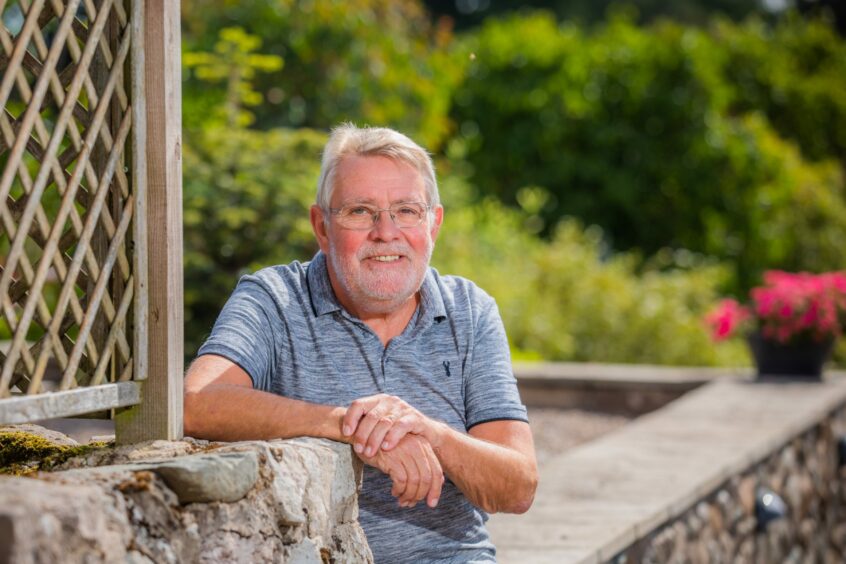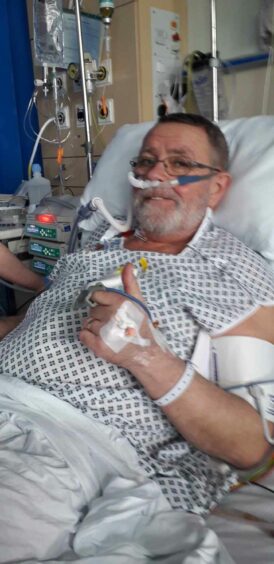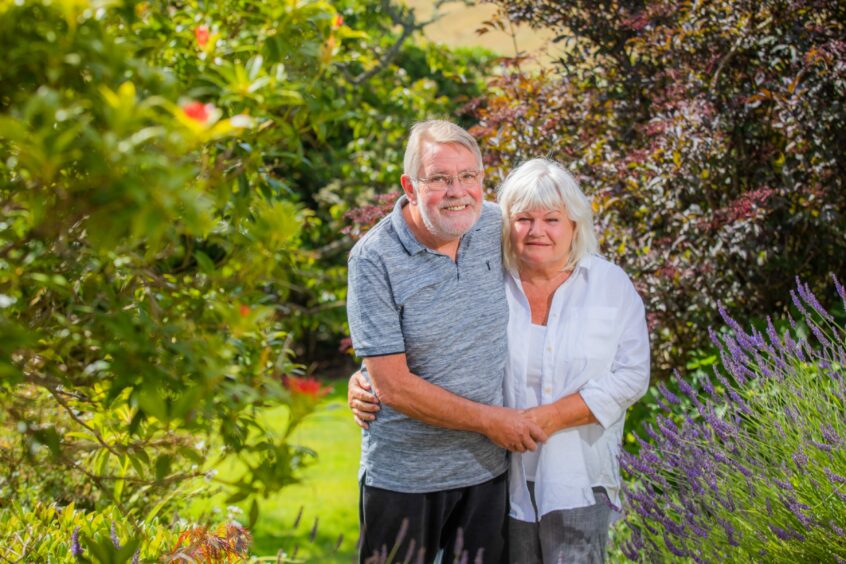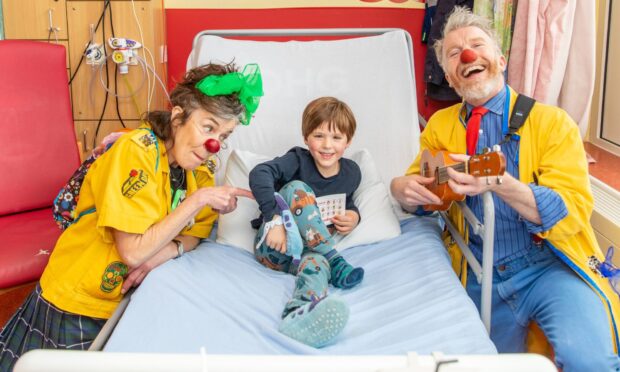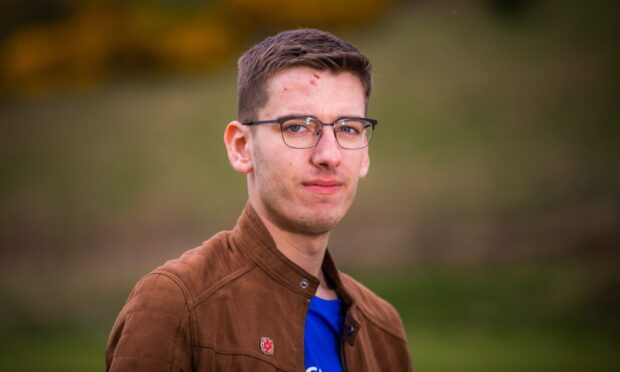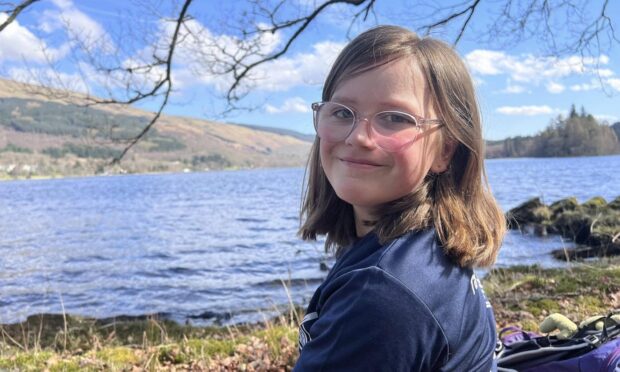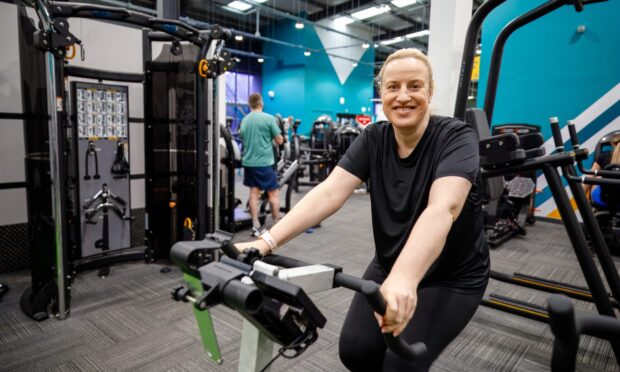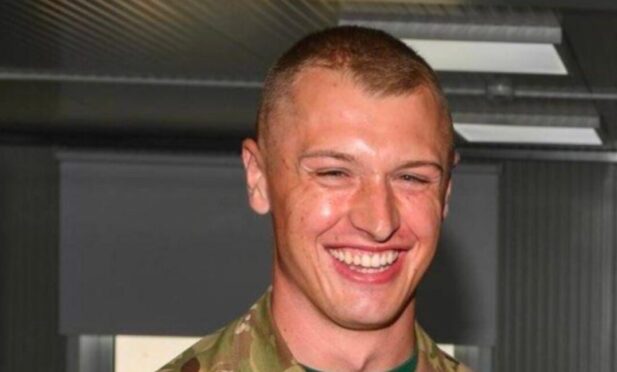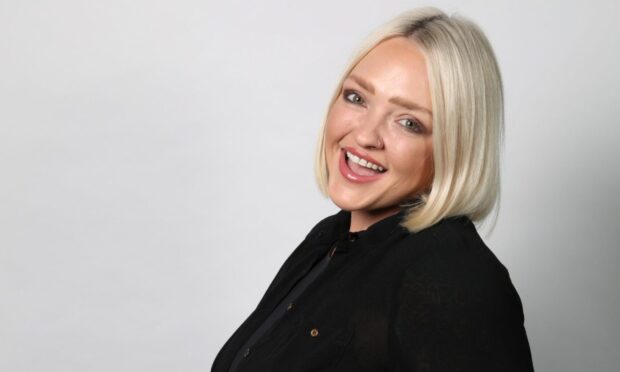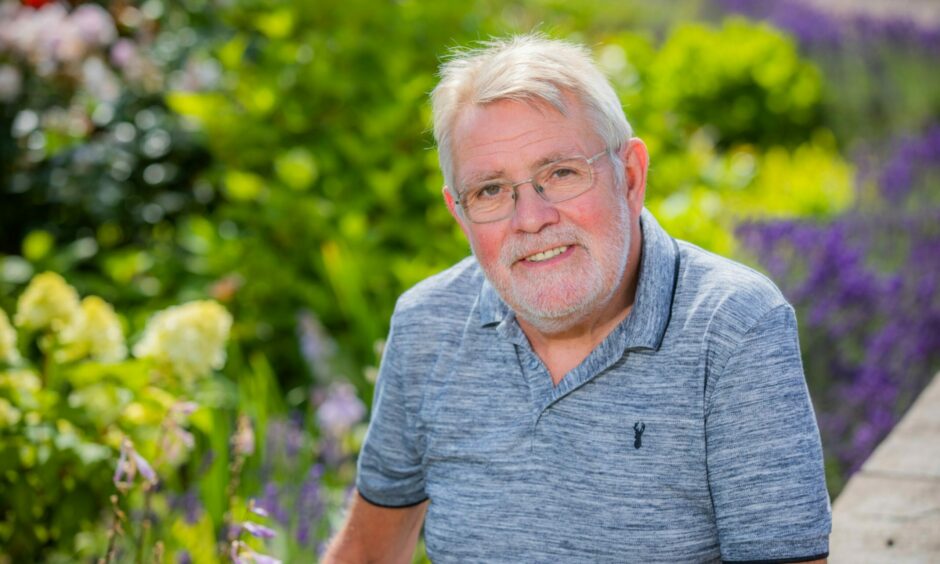
June 28, 2018 is a day that will forever be etched in Iain Macleod’s memory.
It was the day the retired senior police officer was diagnosed with bowel cancer.
“I had no symptoms at all,” says Iain.
“It was the bowel screening test I had which picked it up and the results came back positive.
“I then had a colonoscopy.
“They found the tumour and took a number of samples for biopsy.
“This confirmed the tumour was cancerous.”
Iain, 67, who lives in Pitcairngreen, outside Perth, went on to have a CT and MRI scans which revealed the cancer had spread from his bowel to his liver.
“The initial diagnosis was stage 4 cancer so it was very advanced. I was also told the cancer was inoperable.”
However, a new targeted cancer drug, Panitumumab, proved to be a game-changer for Iain, who was the deputy Chief Constable of Central Scotland Police before retiring at the end of 2010.
And he believes it played a part in helping him survive through stage four bowel cancer.
Iain’s initial bowel cancer prognosis
Initially Iain was told the cancer was inoperable because there were a number of cancerous sites on his liver.
And to remove all of them would have meant leaving him without a functioning liver.
Iain’s consultant oncologist suggested he could have palliative chemotherapy which would improve his chances of living a bit longer.
But it would be a case of looking at an extra two to three years maximum.
A glimmer of hope for retired police chief Iain
However, there was a glimmer of hope on the horizon.
Iain, who spent the majority of his 34-year police service career in Tayside – eventually rising through the ranks to become assistant chief constable of Tayside Police – explained: “My oncologist told me they could do some further work on the material they took through the biopsy.
“This was to find out if the cancer contained a particular gene.
“And if it did, that would make me a candidate for one of the more targeted therapies.”
Iain went on to have his first round of conventional chemotherapy two weeks after the diagnosis.
And it was then he received some positive news.
“My oncologist got in touch to say the results were back and that the cancer I had, had this particular [RAS] gene.
“He then asked if I would be ok to have that therapy included in my treatment, which I knew was a no-brainer.”
So during his second cycle, the cancer drug Panitumumab was added to his chemotherapy.
What is cancer drug Panitumumab and how does it work?
The targeted cancer drug Panitumumab, which is also known by its brand name, Vectibix, has been in use at NHS Scotland for the past six years.
In April 2017 Panitumumab was recommended as an option in NHS Scotland for some previously untreated types of cancer.
This was set out in guidance from Healthcare Improvement Scotland.
According to Cancer Research UK, Panitumumab is used a treatment for bowel cancer that has spread to other areas of the body and it works by blocking signals that tell cancer cells to divide and grow.
Panitumumab only works on bowel cancers that have a normal RAS gene.
How many people in Scotland have bowel cancer?
According to statistics from Public Health Scotland, around 4,000 people in Scotland are diagnosed with bowel cancer every year.
In the UK as a whole, nearly 43,000 people are diagnosed every 12 months – this equates to nearly 120 people every day.
Chances of survival for at least five years with stage four bowel cancer are less than 10%, while for stage one it is nearly 100%.
New drug offers hope in bowel cancer battle
The grandad-of-five had a total of eight cycles of chemotherapy.
Seven rounds included the targeted cancer drug, Panitumumab.
And in November 2018 he had an MRI scan which revealed that his tumour had stabilised.
He then had another scan three months later in February 2019.
Iain said: “At that point my oncologist told me that the primary tumour had reduced in size by 50%.
“There had also been a significant reduction in the number of cancerous sites on the liver.
“As a result, I was now a candidate for surgery. It was unbelievable.
“I was absolutely over the moon with the news. I went from no chance of a cure to well, maybe there is a wee bit of light at the end of the tunnel.”
Iain said his consultant surgeon told him he could give him between a 10 and 30% chance of surviving beyond five years if he had the surgery.
“I was always going to do the surgery, once I knew it was an option.
“Nothing was going to put me off.
“Things then happened really quickly and within a fortnight I was in the operating theatre at Ninewells Hospital in Dundee.”
Iain’s surgery at Ninewells Hospital
Iain ended up spending a month in hospital after the surgery in March 2019 – with two of the four weeks recovering in high dependency.
He had been told beforehand he would wake up in high dependency due to the complex nature of the operation.
As part of the surgery, high frequency radio waves targeted all the cancerous sites on Iain’s liver.
The primary tumour had also affected his bladder too which resulted in part of it being removed.
“I felt ok when I woke up although I was very sore. It took a good few days for me to get back on my feet,” he said.
“But all the staff and the physios were tremendous in getting me through that.”
Scans show no recurrence of the cancer
Iain went on to have check-ups every three months post-surgery and then subsequently six-monthly checks.
But so far all the scans he had – including a blood-marker test – have shown no recurrence of the cancer.
Iain said: “As best they can tell the cancer has been eradicated although consultants would never use the term ‘cured’ especially when talking about stage 4 cancer.
“What is interesting is that I am a member of Bowel Cancer Support UK and within that group, there is quite a number who had the same cocktail of drugs as I was given.
“They have had similar outcomes to me.
“While we will never be able to say it was definitely the addition of that drug which got me to surgery.
“But I think that particular combination of drugs works.”
Five years since Perth man Iain Macleod was diagnosed
It has now been five years since Iain’s bowel cancer diagnosis and today he is in good health.
And it is incredible to think he was initially only given three years to live.
Until it was discovered Iain had a particular gene which proved to be a game-changer in how his bowel cancer could be treated.
He said: “When I was first diagnosed, initially I was shocked.
“It turns your world upside down.
“But I decided it was really important to stay positive.
“Throughout this journey, I have also had the most incredible support from my wife Jackie, 67, and family.
“My children, Lynsey, 37, and Calum, 35, and five grandchildren, Cameron, 6, Finlay, 5 Hamish, 5, Bonnie, 3 and Ruaridh, 2 have all played a huge part in keeping me focussed and positive.
“I hope hearing my story will give people, who have just been diagnosed, hope.”
He added: “I really want to thank my consultant oncologist, my consultant surgeon and everyone else at NHS Tayside who have provided me with the finest treatment and care I could have wished for.
“I really appreciate everything they did for me.
“I am really grateful to have been given more time [that] I never thought I would have.”
